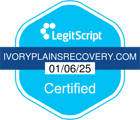No matter what type of counseling you’ve had, whether in an addiction residential rehabilitation setting or private therapy, you probably discussed the importance of building resilience and how it helps you in life. However, knowing this doesn’t mean the process is easy, or that certain circumstances won’t challenge all of your best efforts. If it helps, researchers are still trying to understand the concept but offer various techniques you can try.
What Does It Mean to Have Resilience?
To be resilient refers to the capacity to recover quickly from difficulties and adapt well in the face of adversity, trauma, or significant stress. It’s not merely about bouncing back but also involves a deep, often transformative, process where we learn and grow stronger from our experiences. Granted, we might not want these lessons, but we can use them to our advantage all the same.
Resilient people maintain a positive outlook and find ways to manage their emotions effectively during challenging times. They’re capable of seeing beyond immediate hardships, understanding that setbacks and failures are part of life, and using these experiences to build stronger coping mechanisms.
Resilience encompasses several key components, including:
- Emotional regulation. The Cornell Research Program on Self-Injury and Recovery defines this as “a term generally used to describe a person’s ability to effectively manage and respond to an emotional experience.” Healthy approaches include getting good sleep, exercising, talking with friends, therapy, and other proactive methods. Unhealthy behaviors include misuse of alcohol and substances, self-injury, aggression, and avoidance.
- Positive self-perception. This is how we view ourselves and our abilities. According to The Cleveland Clinic, “With a positive self-image, we recognize and own our assets and potentials while being realistic about our liabilities and limitations. With a negative self-image, we focus on our faults and weaknesses, distorting failure and imperfections.”
- A proactive approach to problem-solving. Johns Hopkins Medicine outlines the difference between being reactive and proactive: “Being reactive means waiting until some situation occurs and then responding to it. Being proactive means anticipating, planning, and confronting problems before they reach crisis points (when you must act rapidly). Being proactive puts you in control of the situation.”
What Dampens Our Resilience?
If resilience is so great, why don’t we all have it in abundance? Unfortunately, there are many barriers affecting our mental, emotional, and behavioral flexibility to adapt to stress and changing circumstances. The nonprofit mental health organization Mind highlights these obstacles, which we provide verbatim:
- Having a long-term physical health condition
- Having a mental health problem
- Experiencing discrimination and hate, including racism, homophobia, biphobia, or transphobia
- Living far away from family or friends, or having difficult relationships with them
- Experiencing loneliness
- Experiencing poverty and money worries, including debt or problems with benefits
- Living in an area with poor access to services like healthcare, public transport, and green spaces
- Being a single parent
- Being a carer
- Having poor-quality housing
- Lacking safety and protection, such as living in areas with poor policing
“Research shows that it’s easier to develop resilience if we don’t face these barriers. But many of these things are difficult or impossible to change,” the organization states.
Additionally, adverse childhood experiences influence our self-image, problem-solving skills, and methods of emotional regulation.
Try These Steps to Become More Resilient
When you believe you can take action toward stronger recovery and personal growth, rather than passively enduring your circumstances, this is the first vital step in building resilience. Also, recognize that there might be some previous thought patterns or behaviors that need to be “undone” before you can incorporate new strategies and habits. Still, with patience and time, you’ll improve your ability to cope with stress and adversity.
Develop a Strong Support Network
Form strong, positive relationships with family, friends, and colleagues. These connections provide emotional support and practical assistance during challenging times. Also, don’t hesitate to ask for help when you need support. Joining groups or communities with similar interests or challenges—like what you have in 12-Step and other support groups—can provide additional support and understanding.
Practice Self-Care
Engage in regular physical activity, eat a balanced diet, and ensure you get enough sleep. Physical well-being is closely linked to emotional resilience. Consider other stress-reducing activities as part of your daily routine, too, such as meditation, yoga, deep breathing exercises, and hobbies you enjoy.
Enhance Emotional Regulation
Practice mindfulness to stay present and aware of your emotions without being overwhelmed by them. Reflect on your experiences and feelings to understand and manage them better. While you might not be a naturally optimistic person, challenging negative thoughts and reframing them more positively helps you maintain hope and motivation during tough times. Positive Psychology offers more resilience skills.
Set and Work Towards Goals
Set achievable, short-term goals that lead to larger, long-term objectives. Breaking down goals into manageable steps makes them less daunting and provides a sense of accomplishment along the way.
Embrace Adaptability and Flexibility
View setbacks and failures as learning opportunities. Reflect on what went wrong and what can be done differently next time to improve outcomes. Work with a therapist to develop strategies for tackling problems head-on so you can approach challenges with a proactive attitude, seeking solutions rather than dwelling on difficulties.
Finally, accept change as a natural part of life. Being adaptable and open to new experiences and ways of doing things helps in adjusting to and overcoming unexpected challenges.
You, Only Better, at Ivory Plains
When you choose to become substance-free and work toward better health, we want to give you as many tools for success as we can. At our addiction rehabilitation program in Adair, Iowa, our board-certified professionals expose you to various evidence-based treatment methods that not only help you move into recovery, but also show you what might have been holding you back from living more healthfully. Ask our admissions team how we cultivate an individualized treatment approach for your needs.








